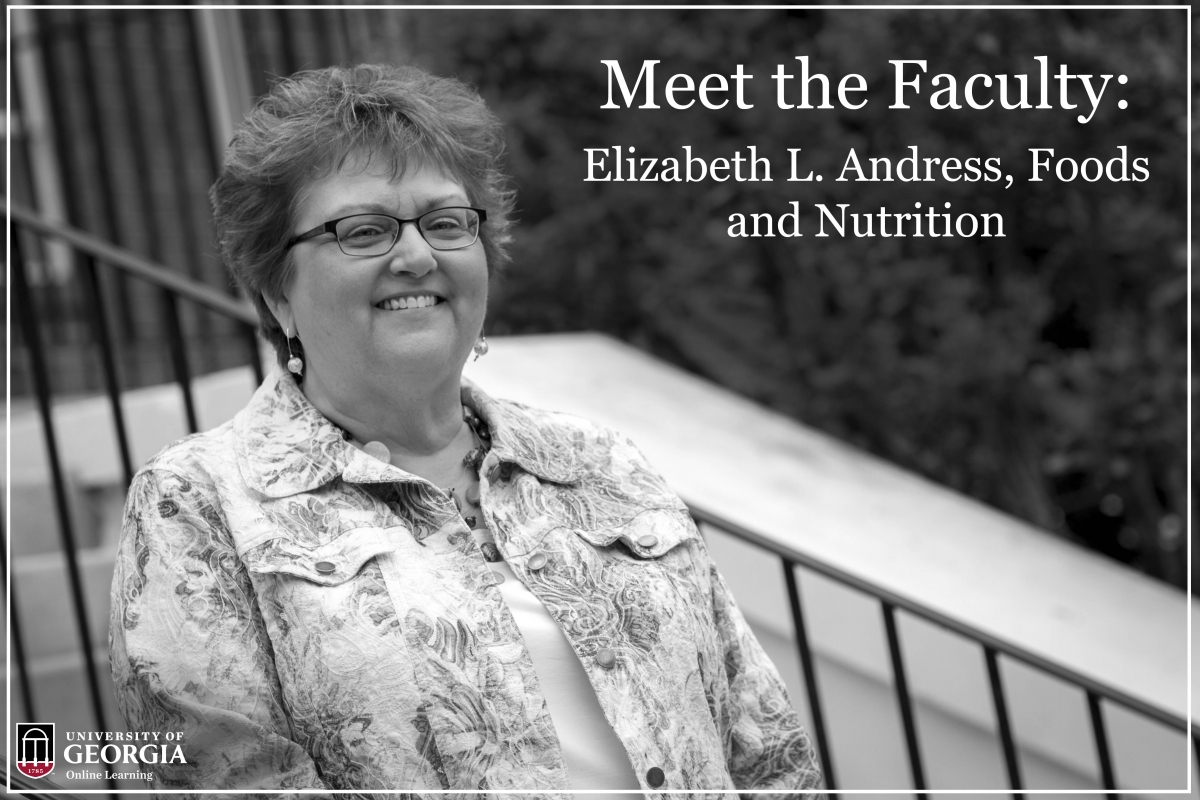Meet the Faculty: Elizabeth L. Andress, Foods and Nutrition
Meet the Faculty: Elizabeth L. Andress, Foods and Nutrition
 “The science of food related to production, processing, preparing and eating is fascinating. It is a medium for the application and interweaving of microbiology, chemistry and engineering as well as behavioral sciences,” explains Elizabeth Andress, professor in the online Master of Science in Foods and Nutrition, Community Nutrition program. She has been teaching for over 30 years, and has been in her current position at UGA since 2004. In addition to teaching, Andress is conducting applied research and serves as a resource to many institutions and agencies in the area.
“The science of food related to production, processing, preparing and eating is fascinating. It is a medium for the application and interweaving of microbiology, chemistry and engineering as well as behavioral sciences,” explains Elizabeth Andress, professor in the online Master of Science in Foods and Nutrition, Community Nutrition program. She has been teaching for over 30 years, and has been in her current position at UGA since 2004. In addition to teaching, Andress is conducting applied research and serves as a resource to many institutions and agencies in the area.
Andress earned her bachelor’s degree from Albright College in Reading, Penn., her master’s degree in family and child development from Virginia Tech, and her Ph.D. in food science from Penn State University. She first came to UGA as an assistant professor and extension specialist in 1989. After working for the USDA in Washington, D.C. from 1991-1994, she returned to the University of Georgia. Andress was appointed as Interim Director of Family and Consumer Sciences Extension for a year before returning to her teaching and specialist work.
“As much as I was enjoying learning about our federal government and having a national perspective on extension work, I missed being an educator and working in the academic environment,” she explains. “I am glad to be back in the role of direct education for community clientele and students.”
Andress is fascinated with the science of food related to production, processing, preparing and eating; food science applies relevant aspects of microbiology, chemistry, engineering, and behavioral sciences. Food touches everyone’s life, and she enjoys being able to give future nutrition professionals the tools they need to address this critical concern.
“I like being able to teach people that there are scientific principles at play that can be learned and then generalized to other situations to help in their [nutritional] decision-making. I also like the relationship of food science to our current as well as historical foundations of agriculture in this country,” she says. “The food industry is huge, and there is an ever-evolving body of data teaching us new things about our food supply and food processing possibilities.”
Andress is currently conducting research on home canning methods, and has published multiple articles on the topic. She was recently interviewed by a local Pennsylvania newspaper on home canning and freezing garden vegetables.
